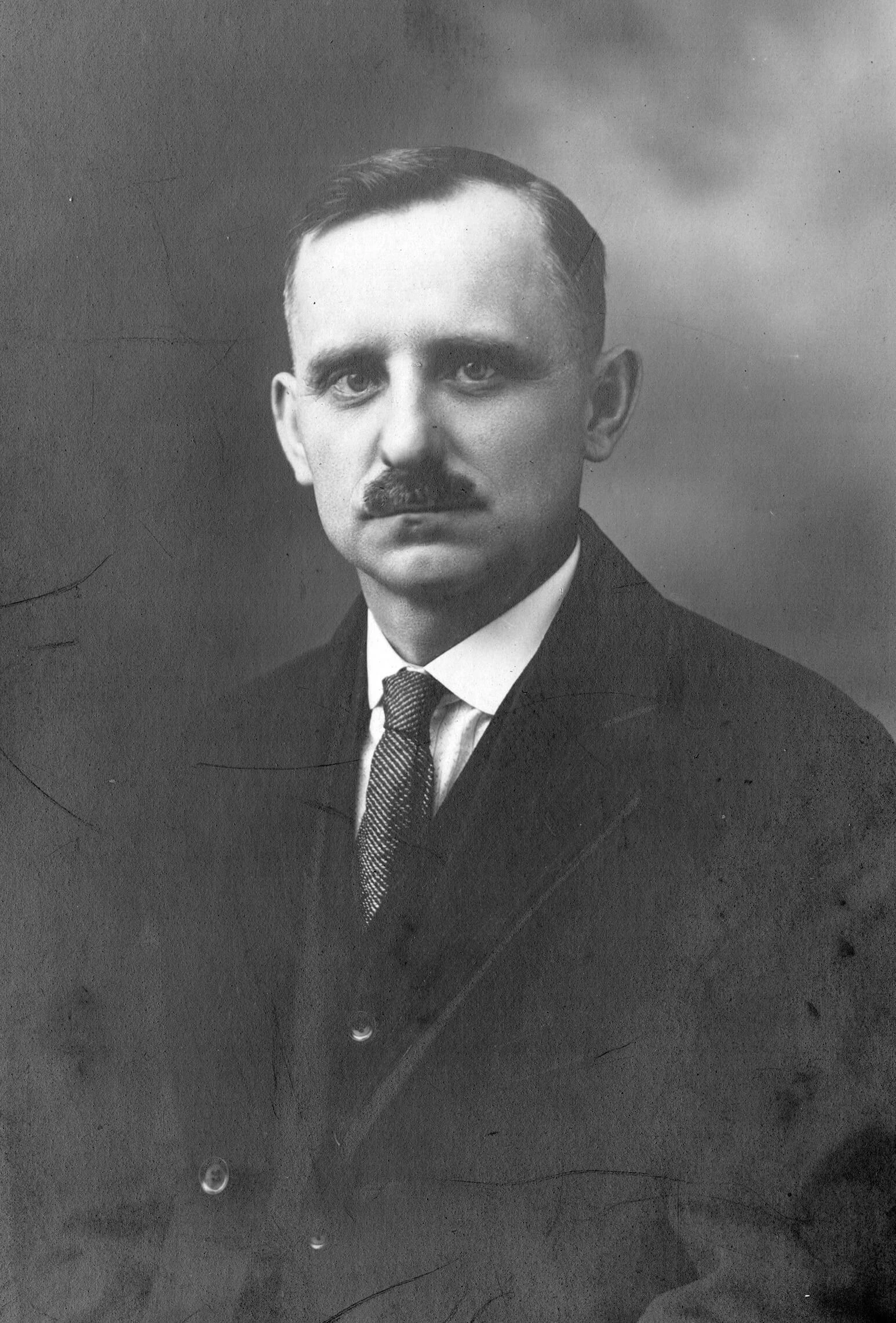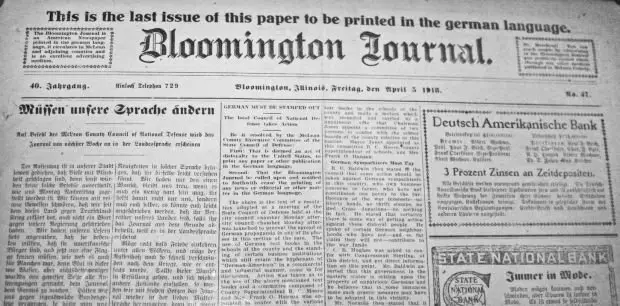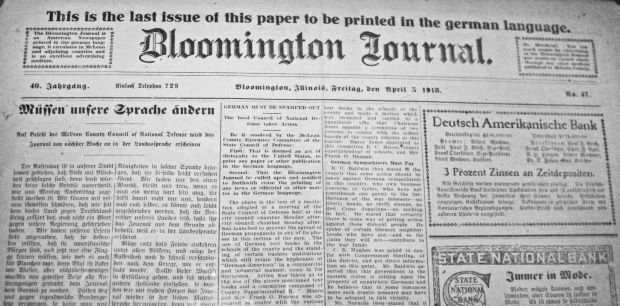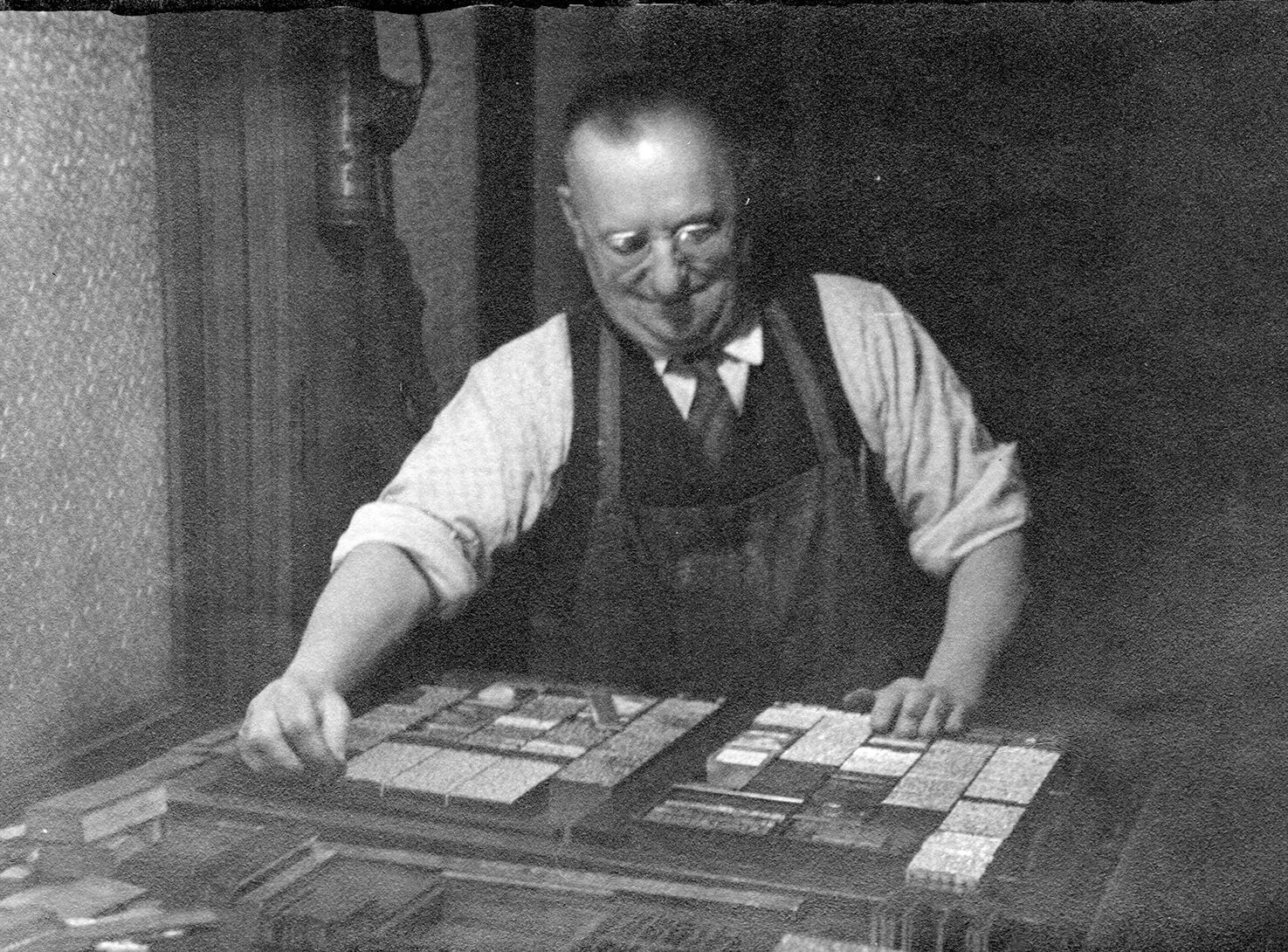1918
Who had the power to instill fear?State Council of Defense
Members of McLean County’s Executive Committee of the State Council of Defense were in charge of securing the safety of the community. They believed anything that implied disloyalty to the United States posed a threat.
German Residents
Bloomington’s German residents were frightened by the anti-German attitudes expressed by the Committee and other residents.
Who had the power?
On April 1, 1918 the McLean County Executive Committee of the State Council of Defense declared it “an act of disloyalty to the United States to print any paper or other publication in the German language.”
Listen to an audio clip of this story...
“Get right or get out” was the warning the local Council of Defense gave John Gummerman, owner of Bloomington’s German language newspaper, the Bloomington Journal.
Gummerman was a German immigrant who had purchased the journal (first established in the late 1870s) in 1912. In the following years he expanded the paper’s circulation beyond Bloomington- Normal to include many rural German-speaking farmers in McLean County and beyond.
The Pantagraph called the journal “one of the leading German newspapers in the state.”
A feisty editorial announcing the Journal’s switchover to English was published by Gummerman the day before it happened.
He had no choice but to carry out the ban (short of shutting down the press), but he made sure that his readers knew he was not happy about it.
“The Journal will keep on being a champion of true democracy and liberty. We shall make our greatest efforts to bring to light persons who claim to be patriots, but when it comes to genuine patriotism from the heart of man, are found wanting, and commit undemocratic acts to cover up their own selfish motives.”
— John B. Gummerman Editorial, March 5, 1918
After the War
Soon after the war ended, Gummerman returned to publishing part of his newspaper in German.
He defended the change, noting it made no sense to suppress the Journal when local residents had easy access to other German-language newspapers (his competitors) in Illinois.
Gummerman had also learned that the local defense council’s order for him to stop printing German was not supported by the National Council.
Gummerman continued to publish the Journal in German until 1931. The printing company stayed in business until the early 1990s, run by Johns’ son Bernie Gummerman and his grandson Kurt Gummerman.
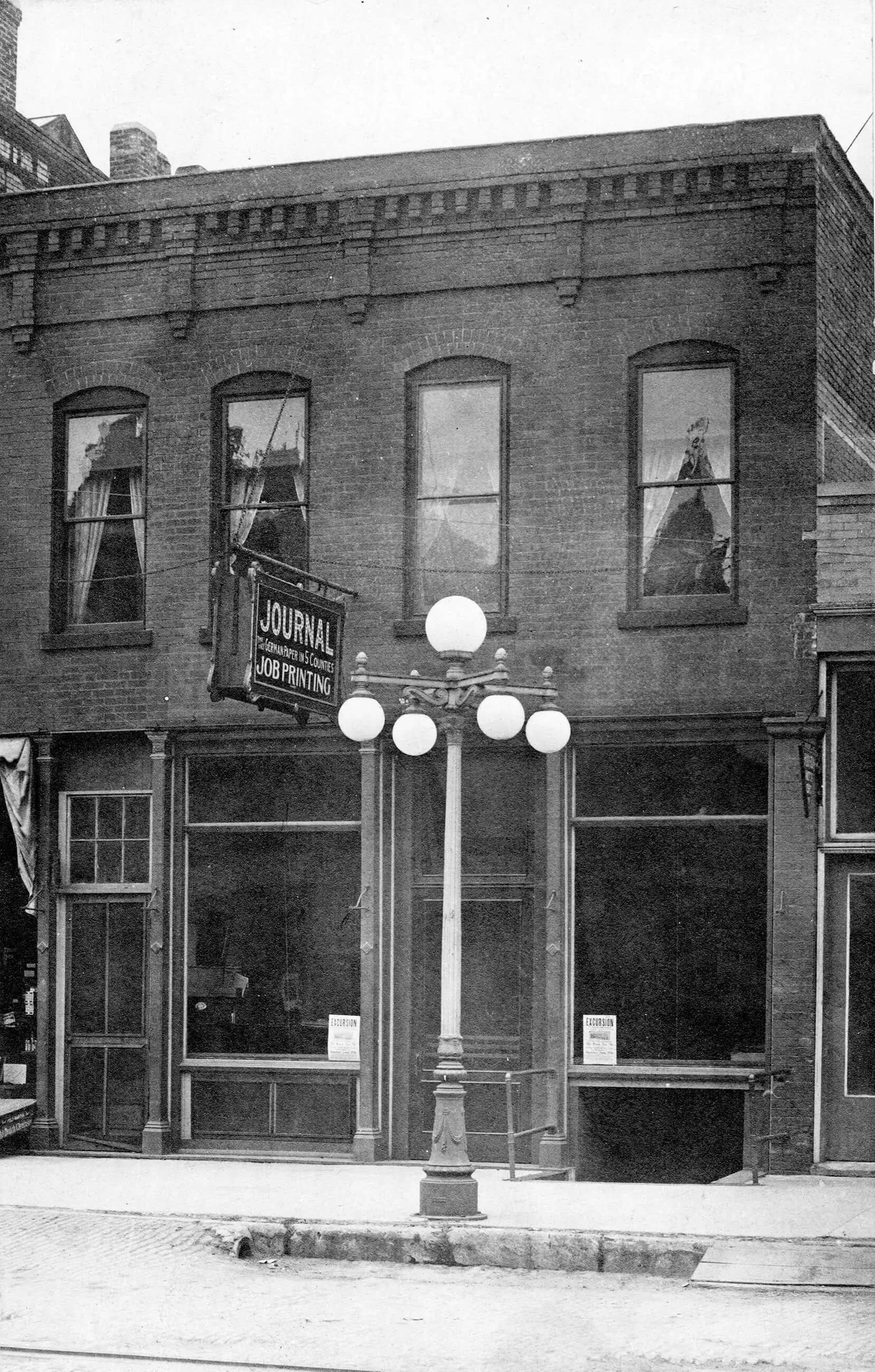
Gummerman’s shop was located at 217-1/2 E. Front Street in Bloomington. See what it looks like today.
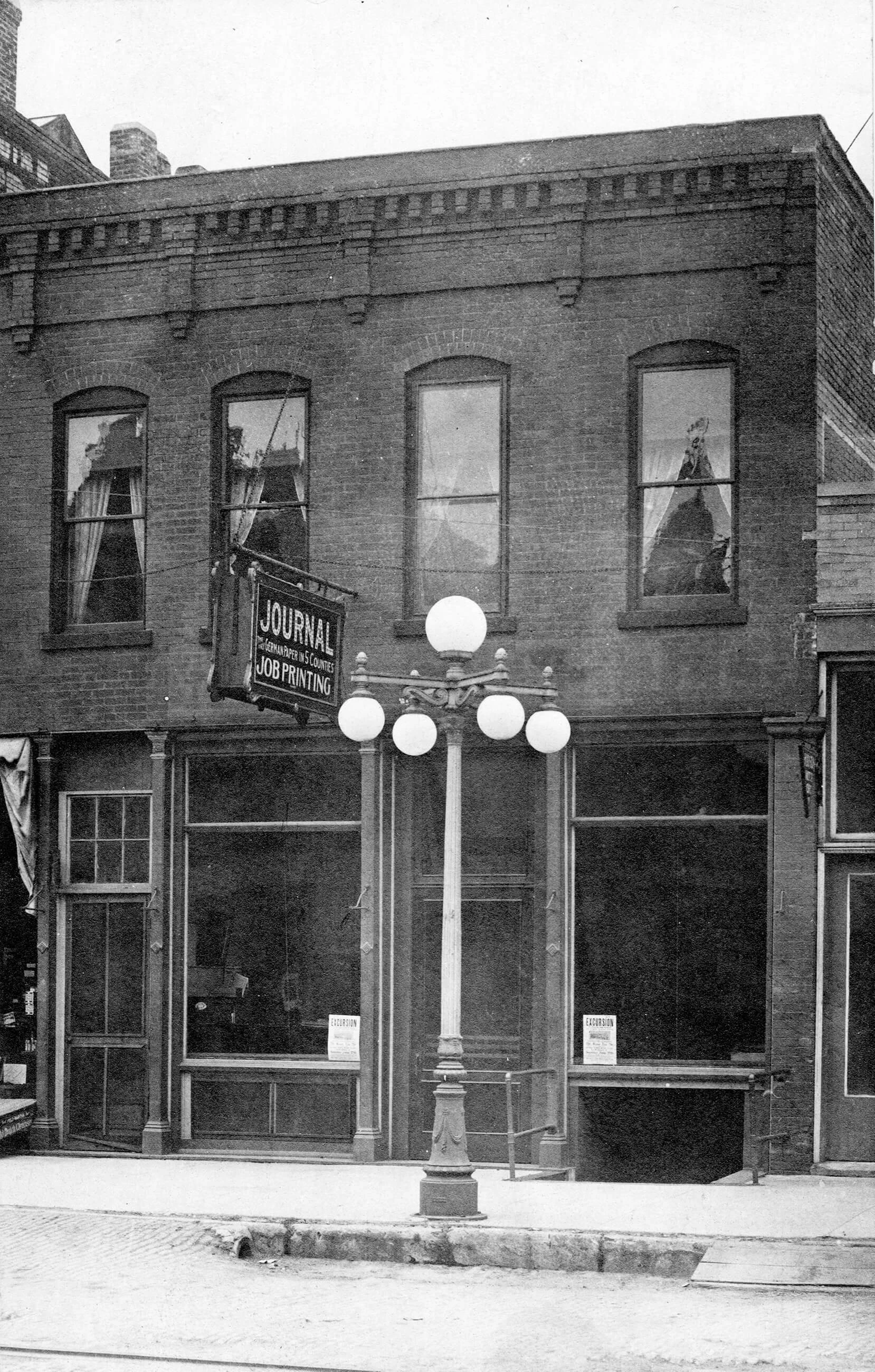
One Council of Defense member, R.C. Baldwin, suggested that the seizure of property might be in order when dealing with unpatriotic Germans in the area.
Fortunately the council was too busy with other measures, such as banning German textbooks in area schools.
In the ensuing months, the overheated anti-German campaign began to cool as most realized that the local German community posed no threat whatsoever to national security.
Reflection Questions
Who instilled fear in Bloomington’s German population?
What gave them that power?
 Making a Home
Making a Home
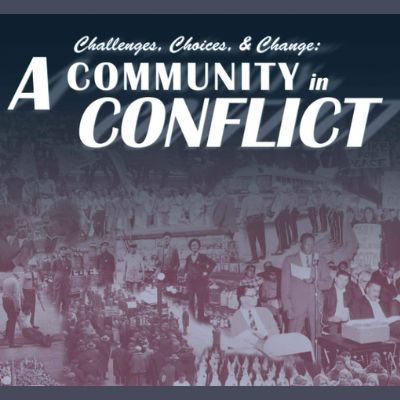 A Community in Conflict
A Community in Conflict
 Working for a Living
Working for a Living
 Farming in the Great Corn Belt
Farming in the Great Corn Belt
 Abraham Lincoln in McLean County
Abraham Lincoln in McLean County

